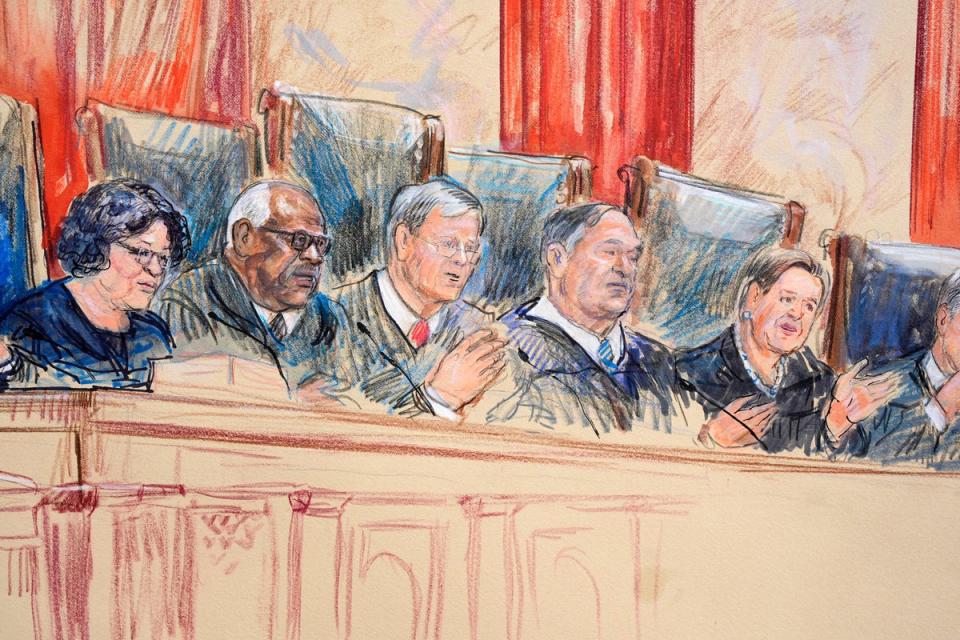Clarence Thomas wants the Supreme Court to stop hearing cases on racist redistricting
The US Supreme Court has overturned a lower court’s decision that found South Carolina’s congressional maps were unconstitutionally gerrymandered to discriminate against Black voters.
The high court’s 6-3 decision on Thursday effectively gives state lawmakers a roadmap for discriminating against Black voters when drafting congressional district boundaries, as long as they can say they were targeting their party affiliation, not their race.
Writing alone in a concurring opinion, Justice Clarence Thomas appeared to argue that the nation’s high court should not be policing racial gerrymandering at all, going so far as to criticize the court’s decision in a landmark case ending segregation in the US as “extravagant.”
In its monumental 1954 decision in Brown v Board of Education, the Supreme Court sought a “boundless view of equitable remedies” through “extravagant uses of judicial power” to end racist segregation, according to Justice Thomas.
He said he wrote separately to address whether established voting rights are “faithful” to the US Constitution. “In my view, the Court has no power to decide these types of claims,” he wrote.
“Drawing political districts is a task for politicians, not federal judges,” arguing that the court’s “insistence” on hearing cases involving racist voter suppression “led it to develop doctrines that indulge in race-based reasoning inimical to the Constitution.”
He argued that the court should “abandon” these kinds of cases and “leave redistricting to politicians.”

Last year, a federal court tossed out South Carolina’s map after finding that the state’s First Congressional District – currently represented by Republican US Rep Nancy Mace – violated the Constitution by using race as the determining factor when drawing its boundaries.
A three-judge federal appeals court panel found that the state legislature’s moving of Black voters out of one district amounted to a “bleaching” of the map. The state’s Republicans – arguing that the map was partisan-driven, not racist – appealed that ruling to the Supreme Court.
The case has magnified the difficulties for ensuring protections for Black voters particularly in states where one’s race and political affiliation are closely aligned, blurring the line between racial or partisan gerrymandering. An overwhelming majority of Black voters in South Carolina vote Democratic. Only seven percent vote Republican.
In Thursday’s decision written by Justice Samuel Alito , the Supreme Court’s conservative majority argued that the complaint from the South Carolina chapter of the NAACP relied on “circumstantial” evidence that Republican state lawmakers used race when they drafted its congressional map.
The justices stood with GOP lawmakers who argued that diminishing Black voter power was only a side effect of a partisan gerrymander.
The court’s three liberal Justices Ketanji Brown Jackson, Elena Kagan and Sonia Sotomayor dissented.
In a fierce dissent that’s even longer than the majority’s opinion, Justice Kagan wrote that the court had effectively allowed “this ‘odious’ practice of sorting citizens, built on racial generalizations and exploiting racial divisions,” to continue.
“Go right ahead, this Court says to States today,” she wrote. “Go ahead, though you have no recognized justification for using race, such as to comply with statutes ensuring equal voting rights. Go ahead, though you are (at best) using race as a short-cut to bring about partisan gains – to elect more Republicans in one case, more Democrats in another. It will be easy enough to cover your tracks in the end.”